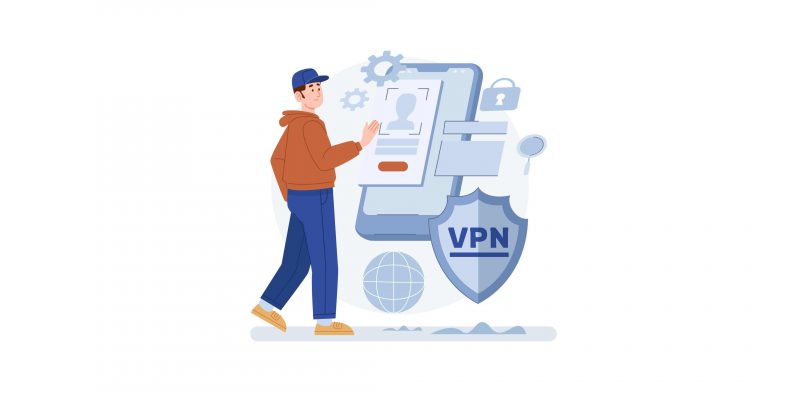The internet is central to nearly every aspect of daily life, such as work, education, communication, shopping, and entertainment. However, widespread internet use also introduces significant risks, including the extraction of personal data, tracking by service providers and advertisers, and varying access to online resources depending on location. To address these challenges and ensure a safer, more controlled online experience, many users are turning to VPN technology.
A Virtual Private Network (VPN) provides a secure, encrypted connection between a user’s device and the internet. By masking the user’s real IP address and encrypting data traffic, a VPN enhances privacy and security while also enabling access to content as if the user were located in a different region. For individuals and organizations alike, VPNs have become an important tool for maintaining privacy, protecting sensitive information, and ensuring reliable access to online services.
What Is a VPN?
A VPN, or Virtual Private Network, is a technology that establishes a secure, encrypted connection between a user’s device and the internet. This connection functions as a protected channel through which all online traffic is transmitted, effectively concealing the user’s real IP address and substituting it with the IP address of the VPN server, which may be located in a different city or country.
The primary purpose of a VPN is to enhance privacy and security. By encrypting transmitted data, a VPN prevents unauthorized parties (such as internet service providers, malicious actors, or governmental entities) from easily monitoring the websites visited or the information exchanged. This protection is particularly critical when using public Wi-Fi networks, such as those found in cafés, airports, or hotels, where the risk of data compromise is elevated.
In addition to security benefits, VPNs provide the ability to access online content that may otherwise be unavailable due to regional variations. For example, users can stream content exclusive to specific countries, access websites that are not directly available in their location, or utilize services that are regionally restricted.
How Does a VPN Work?
Technically, a VPN establishes a secure connection between a client device and a VPN server. All data transmitted through this connection is encrypted using advanced security protocols, which may include:
-
OpenVPN – a widely used and reliable protocol;
-
IKEv2/IPSec – known for speed and connection stability;
-
WireGuard – a modern, efficient protocol that combines performance and security;
-
Shadow/Obfuscation – designed to maintain stable connections in countries with stricter internet environments.
This encryption ensures that online activity is protected from interception, while the user’s real location remains concealed.
Why Do You Need a VPN?
There are several key reasons why VPNs are so widely used today:
-
Privacy and security
VPNs encrypt your data, so even if someone intercepts it (for example, on a public Wi-Fi network), all they’ll see is meaningless code. This is crucial for protecting passwords, banking details, and personal conversations. -
Hiding your IP address
ISPs, advertisers, and even government agencies can track your online behavior. A VPN hides your real IP, helping you stay anonymous. -
Accessing global content
Internet access varies from country to country: in Russia, some social media and media outlets are unavailable; in China, Google and YouTube don’t work; and in other regions, streaming libraries on platforms like Netflix or live sports coverage may be limited. By connecting to a VPN server abroad, you can browse as if you were there. -
Safer use of public Wi-Fi
Free Wi-Fi at cafés, hotels, or airports is convenient but often unsafe. A VPN secures your connection and protects your data from potential attackers. -
Saving money
Online shops, airlines, and booking sites sometimes show different prices depending on your location. By switching your virtual location with a VPN, you may find cheaper deals.
A VPN is a versatile tool that helps protect your data, keep your online activity private, and give you the freedom to use the internet without limits. With it, you can safely connect to public Wi-Fi, stay anonymous, and access content worldwide.
